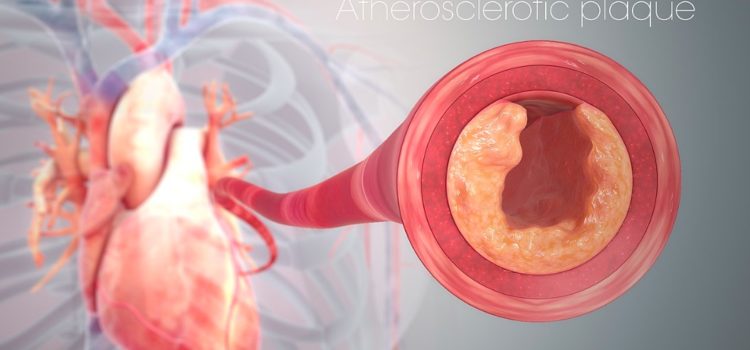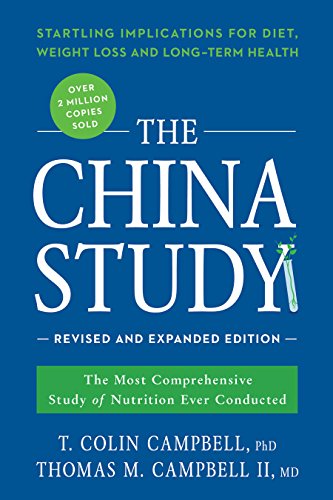

This article is an excerpt from the Shortform summary of "The China Study" by Colin Campbell. Shortform has the world's best summaries of books you should be reading.
Like this article? Sign up for a free trial here .
What are the risk factors for heart disease? And which heart disease cause is the most influential: smoking, eating animal products, or your genes?
We’ll look at the research that covers what heart disease is, what causes it, and which risk factors are the most important to be aware of. Learn why heart disease is largely preventable.
Heart Disease Statistics
Heart disease has been the leading cause of death in the U.S. for almost 100 years, killing 40% of Americans and leading to 3,000 heart attacks in America every day.
Still, women tend to worry more about breast cancer, even though they’re eight times more likely to die of heart disease. Young people should also be vigilant—heart disease exists even in those who are in their 20s and seemingly healthy. One study examined 300 soldiers killed in the Korean War, none of whom had been diagnosed with heart problems. Their average age was 22. When researchers dissected their hearts, they found that 77.3% had major evidence of heart disease. Why are so many people at risk of heart disease?
Heart Disease Causes
Risk factors for heart disease include high cholesterol, high blood pressure, obesity, smoking, and lack of physical activity. Almost all of these risk factors contribute in some way to plaque buildup in the arteries. To understand heart disease causes, let’s look at how their result, plaque, wreaks havoc on the arteries.
The Role of Plaque in Heart Disease
Plaque is made up of cholesterol, proteins, and immune system cells, among other components. Together, they create a greasy layer lining the walls of the coronary arteries.
You can think of the coronary arteries like garden hoses. Plaque accumulating in an artery is like putting an increasingly acute kink in the hose. Blood flow turns to a trickle. Plaque buildup leads to angina, or chest pain.
What Happens During a Heart Attack?
Counterintuitively, having more plaque buildup doesn’t necessarily mean you have a higher heart attack risk. Heart attacks are more likely to happen when plaque blocks less than 50% of the artery.
This is because thinner layers of plaque have weaker caps. Caps are layers of cells that can separate from the core of the plaque.
Blood surging through the arteries can cause a cap to rupture. When this happens, some of the contents of the plaque mix with the blood, and a clot forms at the rupture site. The clot can get so big that it blocks the whole artery.
Consequently, the heart doesn’t get enough blood (or the oxygen it carries), and cells in the heart start to die. This is a heart attack. One-third of heart attacks are fatal.
Because we can’t know when caps will rupture, heart attacks are hard to predict. But because we know the risk factors of heart disease, Westerners are finally starting to view it as one of the few diseases we have some control over.
Research on Heart Disease Causes
Two studies, one recent and one conducted over half a century ago, demonstrate the impact of diet on heart disease.
Research Study #1: The Impact of Genes, Smoking, and Diet on Heart Disease
One study looked at Japanese men living in Hawaii, California, and Japan. Those living in Hawaii and California had far higher rates of coronary heart disease than their counterparts living in Japan.
- The Impact of Genes: Because these men shared a genetic heritage, genes were not the primary determining factor in developing heart disease.
- The Impact of Smoking: Men in Japan smoked more than Japanese men in Hawaii and California, and they still experienced fewer incidences of heart disease. This indicates that smoking is also not the most important factor in determining heart disease risk.
The researchers concluded that diet had the most impact on heart disease risk. They found that the study participants who had a diet high in saturated fats, animal protein, and dietary cholesterol had higher blood cholesterol levels, a risk factor of heart disease.
Research Study #2: 1946 Los Angeles Study
In 1946, it was already clear that diet had a major impact on heart disease. One doctor conducted a study in which he asked 50 of his patients (Group A), all heart attack survivors, to continue eating as they normally would, and another 50 patients (Group B), also heart attack survivors, to eat a low-fat, low-cholesterol diet.
Group B was allowed only 4 ounces of meat a day. They weren’t allowed to eat pork, animal fats, cream, butter, egg yolks, whole milk, or anything made with these ingredients.
Results:
8 years out:
- Only 24% of Group A patients, those eating the standard American diet, were alive.
- 56% of Group B patients, those eating a low-fat, low-cholesterol diet, were alive.
12 years out:
- 0% of Group A patients were still alive.
- 38% of Group B patients were still alive.
Group B’s low-fat, low-cholesterol diet severely limited their intake of animal foods, and dramatically increased their potential lifespans.
Heart Disease Causes: Fat and Cholesterol—The Main Culprits?
Early research studies like the one above focused on the roles of fat and cholesterol in heart disease. No one considered that the amount of fat and cholesterol you consumed might merely be indicative of how much animal-based food you were eating.
More recent studies have indicated that, in addition to fat and cholesterol consumption, eating animal protein increases your risk of heart disease.
In one study, researchers fed casein (a milk protein) to rats, rabbits, and pigs. They found that casein alone, independent of fat and dietary cholesterol, raised the animals’ blood cholesterol levels.
Conversely, feeding animals soy protein dramatically decreased their blood cholesterol levels, and human studies have indicated that eating plant protein has even more power to decrease cholesterol levels than decreasing fat or dietary cholesterol intake.
A list of heart disease causes and risk factors for heart disease should probably include the consumption of animal products. Lower the amount of meat and dairy you eat and increase your consumption of plant foods like fruits, vegetables, grains, and legumes to eliminate the primary risk factor for heart disease.
———End of Preview———

Like what you just read? Read the rest of the world's best summary of "The China Study" at Shortform . Learn the book's critical concepts in 20 minutes or less .
Here's what you'll find in our full The China Study summary :
- Why animal proteins (meat, milk) might cause cancer, diabetes, and other diseases
- Why the medical institution is structured to hide the truth about disease and food
- The precise diet you'll need to eat to live longer and feel happier






